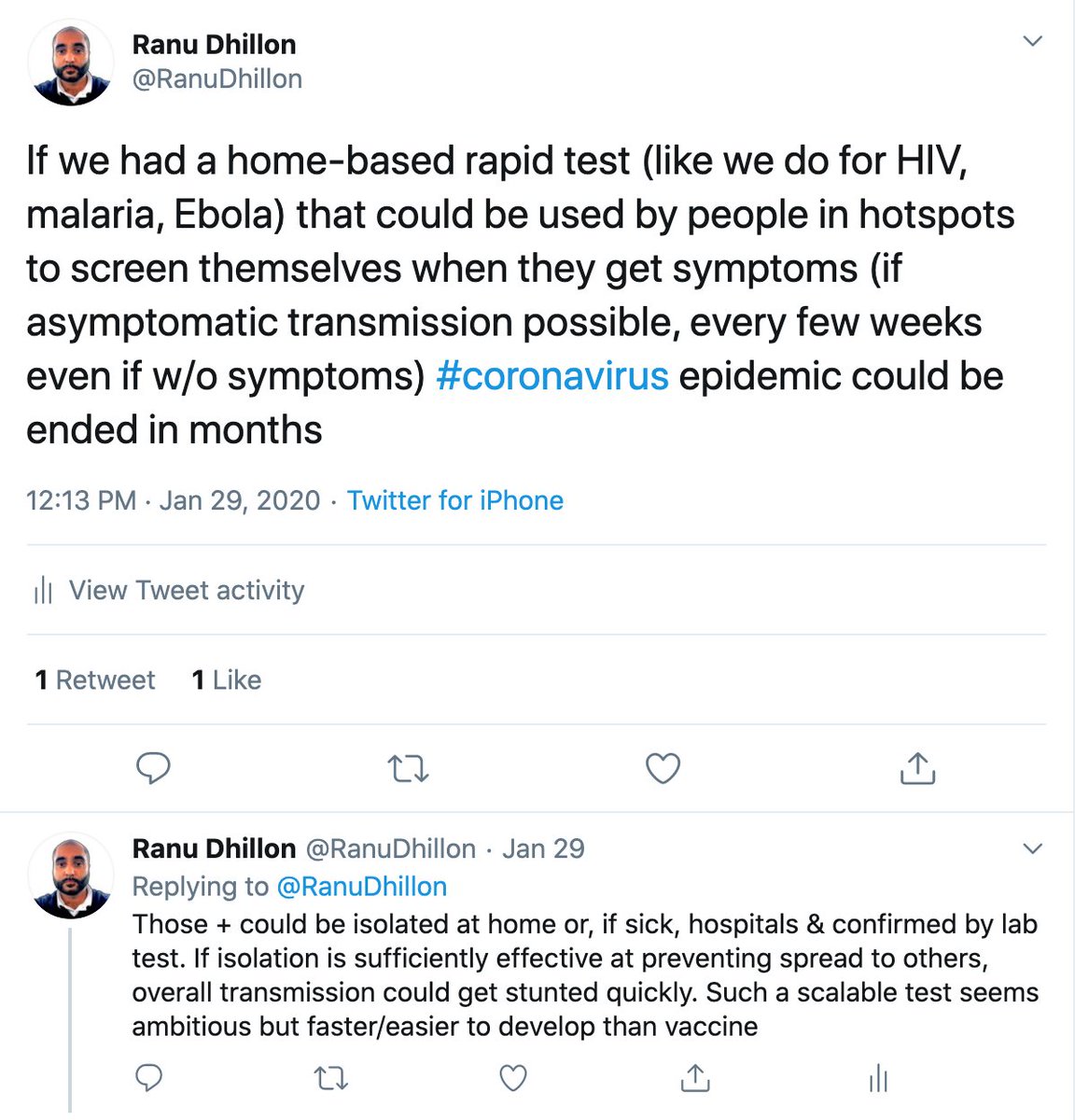
Doc @harvardmed & CA
I work on primary health care systems & epidemics in low-income countries. I helped manage Guinea's national Ebola response
How to get URL link on X (Twitter) App


 (1) Air cleaning must stop long-range spread by calibrating filtration to remove the amount of pathogen emitted in superspreading (not based on # of people in the room)
(1) Air cleaning must stop long-range spread by calibrating filtration to remove the amount of pathogen emitted in superspreading (not based on # of people in the room)https://twitter.com/Bob_Wachter/status/1523539589603889152The judgements you expertly made are ones that are currently being put on all individuals irrespective of their knowledge & comfort with Covid

https://twitter.com/celinegounder/status/1367138404551585799Most of our 'standard' strategies -- cloth masks, "stay-at-home", distance -- do nothing to address this cycle of transmission
https://twitter.com/stefanswartpet/status/1313025659527139328(2/3) #1 can be achieved by merging best practices that thus far happen in isolation into integrated systems that leverage technological- connectivity, AI, automation- tools to orchestrate/facilitate high-quality replicable execution at scale
https://twitter.com/ashishkjha/status/13052525797865308182/ We shouldn't hold up something that can stop transmission because it will be harder to monitor or collect data on
https://twitter.com/DrTomFrieden/status/13034054928830750732/ There was a lag between determining a need & getting it established so the best we could do was use modeling to start deployment &, if transmission shifted & changed, we revised our models & adjusted our projections & plans
https://twitter.com/ScottGottliebMD/status/13025938950884802572/ In pre-Covid winters, we typically fill to capacity & periodically have to 'surge' not even because of flu but other respiratory viruses & environmental triggers for chronic lung disease

https://twitter.com/JClinMicro/status/1302590654694993920And here is some modeling data that suggests that rapid testing in this manner could have reduced the number of infections in the West African Ebola epidemic by *a third*



 @AbraarKaran @EricTopol @amymaxmen @michaelmina_lab @j_g_allen @ZoeMcLaren @PaulSaxMD @BhadeliaMD @celinegounder @JeremyKonyndyk @nataliexdean @alexismadrigal @yayitsrob @ashishkjha @KatherineJWu @apoorva_nyc @K_G_Andersen @paimadhu @cmyeaton @T_Inglesby @zeynep @HarvardGH
@AbraarKaran @EricTopol @amymaxmen @michaelmina_lab @j_g_allen @ZoeMcLaren @PaulSaxMD @BhadeliaMD @celinegounder @JeremyKonyndyk @nataliexdean @alexismadrigal @yayitsrob @ashishkjha @KatherineJWu @apoorva_nyc @K_G_Andersen @paimadhu @cmyeaton @T_Inglesby @zeynep @HarvardGH



https://twitter.com/michaelmina_lab/status/12923243348250173442/ There is a big problem effectively translating scientific ideas into policy
